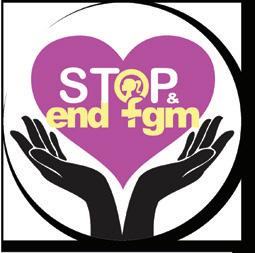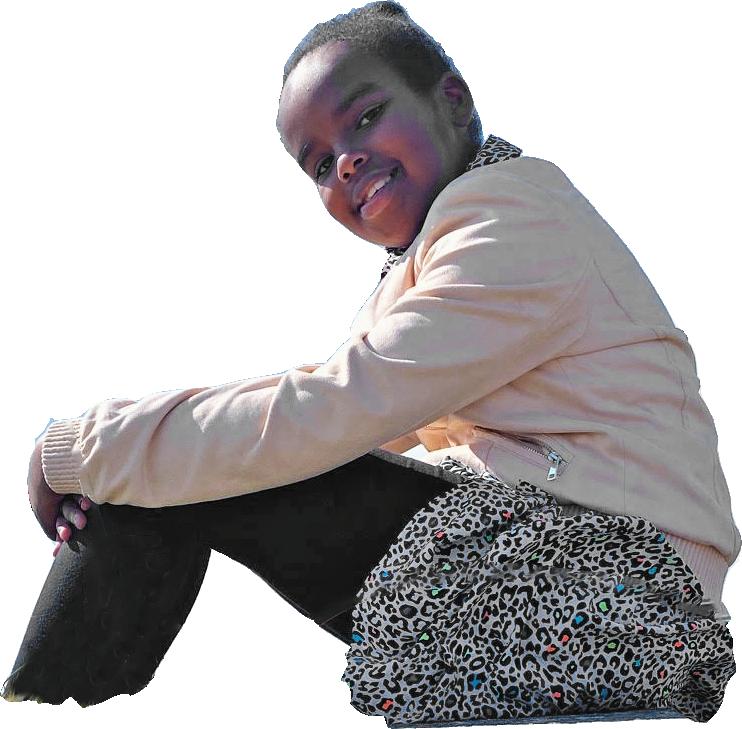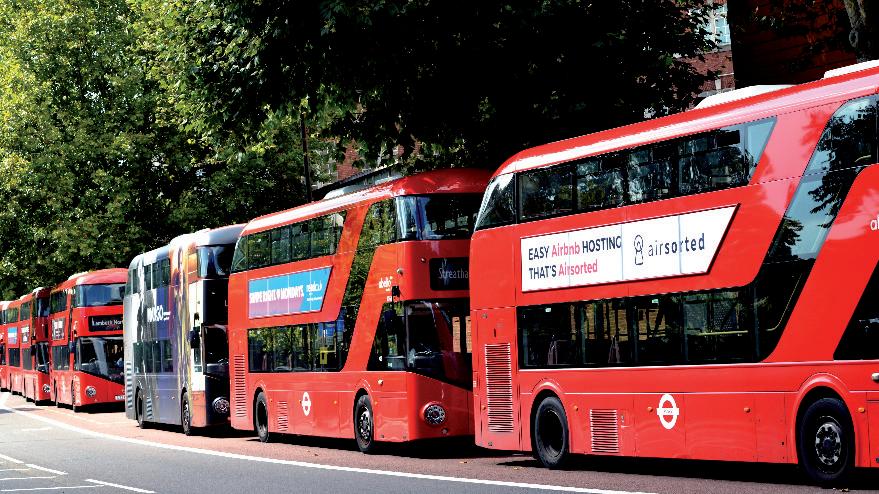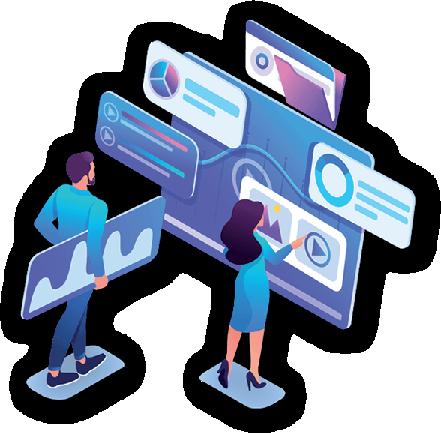

LAUREN NICOLE WHITTER Anansi Theatre DANSON NJOKA CEO of Kugali RAMS IN KENYA Reaches 10th Trip What is World AIDS Day? - Page 30











: 0115 784 6666 | M: 0751 @mojatu.foundation Taking The Free Sessions: Tuesdays Saturdays Ac tivities include: Fruit Har vesting Tree Management Mojatu F T: 0115 784 6666 | M: 0751 366 1176 | E: angela@moj @mojatu.foundation @ mojatuf @mojatu_foundation Woodland Managemen SessionsApr-Sep ‘18 Taking The City To the Farm Refugees Seeker ADOPT Free Sessions: Tuesdays Saturdays Ac tivities include: Fruit Har vesting Tree Manageme Weeding for P Feeding the animal h Mojatu Foundation | 167 Alfreton Road, NG7 3JR T: 0115 784 6666 | M: 0751 366 1176 | E: angela@mojatu.com ED W O O Ecocentre, Home ww w @mojatu.foundation @ j @mojatu_foundation Woodland Management SessionsApr-Sep ‘18 Taking The City To the Farm Refugees & Asylum Seekers Welcome ADOPT A TREE Free Sessions: Tuesdays Saturdays Ac tivities include: Fruit Har vesting Tree Management Weeding for Pumpkins & Maize Feeding the animals Female Genital Mutilation FGM – FACTS , HELP & ACTIONS Facts • FGM is any procedure that intentionally alter or cause injury to the female genital organs for non-medical reasons. • FGM has been illegal in England and Wales since 1985. • FGM is a form of child abuse and violence against women and girls. • • FGM is Non-Islamic, against the teachings of Islam and brings Islam into disrepute. • FGM is putting the health of our daughters, sisters, mothers and wives at great risk. • • Over 200 million girls and women worldwide have undergone FGM. • 103,000 women aged15 to 49 are living with consequences of FGM in England & Wales. • In the UK, an estimated 20,000 girls under the age of 15 are at risk of FGM each year. • 1,230 cases have been reported in the Midlands from April 2020 to March 2021 • Drop in sessions at Mojatu Office Unit 7, Howitt Bldg, Lenton Blvd, Lenton, Nott`s NG7 2BY Help Are you concerned a girl or woman is at risk or need of support? • • Join the Community FGM Steering Group: Contact us • For emotional & peer support for survivors in Nottingham, join the FGM Survivor’s club: Contact us • Refer survivors needing medical attention to FGM medical specialist in Nottingham: Contact us • • Call 0808 028 350 for a 24/7 anonymous FGM helpline or email: fgmhelp@nspcc.org.uk • Call Nottingham City Council Children and Families Direct: 0115 876 4800 • Ring the police on 999 if FGM has just happened or about to happen Actions To help end FGM and support survivors, join one of our campaigns or projects • FGM Survivors Club • FGM Steering Group • FGM Global Faith Ambassador • FGM Global Young Ambassador • Request for training • Volunteer with us • ‘Adopt a tree’ project • Donate to support our work • Fundraise to support our work • Women Skillshare Group For more information, contac t Mojatu Foundation Phone: 01158457009 Mobile: 07759 927671 Email: info@mojatufoundation.org | Website: www.mojatufoundation.o
It is very unfair for our society to put the responsibility on women to keep themselves safe when the perpetrators show no form of remorse for their crimes and inappropriate sexual advances against women and girls. Men should become allies to women and take part in creating solutions to such menace. Our society has become so misogynistic that women hardly feel safe walking on our streets.
This has become an economic burden on them because most women and girls would have to take a taxi to go back home after work since some of them would feel scared and unsafe. Taking a stroll to the park or even doing an out-door physical exercise seems unsafe. Violence against women is a matter of human rights that many women feel being deprived from hence opening a window of violence for men to perpetuate against them. Some men do not give much to such things because they already have a negative view of women while for some, their upbringing, and cultures give them a different perspective of women. The key thing is that men should have more empathy for women and understand their perspective on how they are viewed in some men’s eyes. Organising trainings for men especially the young ones will help in creating a greater understanding of other men’s behaviour and attitude towards women. Men’s violence against women is a serious issue that requires expert knowledge and that’s why initiatives like Stand by Her are so important in raising awareness and developing the required knowledge and skills men need to be allies to tackle misogyny in our communities. Everyone deserves to be treated with respect with dignity.
Cover
Editorial
Group Editor: Pa Modou Faal – pa@mojatu.com
Managing Editor: Jamie Morris- derby@mojatu.com
Design: Robert Borbely - robert@mojatu.com
Photos: www.freepik.com
Contributors: Pa Modou Faal | Jamie Morris | Tristan
Best | Joshua Dixon-Muir | Fynest Beats | Joseph
Clayton | Solutions Journalism Exchange
IT | Social Media: Amanda Duke
Accounts: Thierry Karume - accounts@mojatu.com
Admin: Penny Cooper - penny@mojatu.com
News & Comments: news@mojatu.com
Sales & Marketing | Community Engagement
Abdoulie Jah - jah@mojatu.com
Terry Njoki - terry@kutambua.com Edwin Ubah - eddy@mojatu.com
Audio Contents - Terry Njoki - Terry@kutambua.com


Social Media: Amanda Duke - marketing@mojatu.com
Getting the magazine: Online @ www.mojatu.com|magazines
Subscription @ £24 per year including postage
Address: 91 Melbourne Street, Derby, DE1 2GF.
T: 0115 8457 009 | 07393499448 | 0751 366 1176
Facebook: facebook.com/MojatuDerby
Twitter: twitter.com/MojatuDerby
Instagram: instagram.com/mojatuderby
Printers: Mojatu Media
Contents Editor ’s Welcome
HAKUNA MATATA
Whitter Mojatu Media Disclaimer The views expressed in this magazine are not necessarily those of the publishers. Every effort has been made to ensure that the contents of this magazine are accurate but the publisher cannot take responsibility for errors, omissions, nor can we accept responsibility for the advertisements or editorial contributions. News & Sports Miss Universe 4 Zimbabwe’s women-only rangers ..........................5 Rams in Kenya................................................................9 League One Tragedy Pt 2........................................ 11 Community Richard Reddie on race, faith and hate crime . 12 Hate Crime stand at Derby Bus Station 13 WP&J catch-up ........................................................... 14 Arts & Culture Kugali interview .................................................. 16-17 Anansi Theatre ............................................................ 18 HER-story at Derby Museum .......................... 20-21 Health & Food Men’s mental health ................................................. 25 The Power of Pets ................................................ 26-27 World AIDS Day 2022 ............................................... 30 Business & Finance Be your own boss .......................................................... 33 Four-day workweek 34 Education & Career Ukrainian children’s education ................................ 35 | 167 0751 366 1176 | E: angela@moj W w @ he Cit Maize lin l/ , NG7 3JR angela@moj on, NG13 8JL .uk @mojatu_foundation arm efugees & Asylum eekers Welcome ADOPT A TREE
Pa Modou Faal
Lauren Nicole
MISS UNIVERSE 2022: DERBY WOMAN TO REPRESENT GREAT BRITAIN AT GLOBAL PAGEANT
By Jamie Morris
A banker from Derbyshire will be competing for the highlycoveted title of Miss Universe in the new year.

Noky Simbani, who was born in Zimbabwe and now lives in Hilton, Derbyshire, is set to represent Britain at the worldwide Miss Universe pageant in New Orleans in January.
In July 2022, Noky was named Miss Universe Great Britain at the Riverfront Arts Centre in Wales, succeeding previous title-holder Emma Collingridge. She first got into pageants when she visited a fashion exhibition with her mother when she was 15, where she met her first pageant director.
Noky went to Littleover Community School in Derby before completing both a bachelor’s and master’s degree in chemical engineering at the University of Birmingham. She now works as a chartered commercial banker.
Outside of her work in finance, the 25-year-old volunteers as a careers ambassador to encourage young people across the UK to cultivate vital career skills. She is the BAME ambassador for Smart Works Birmingham, a female employment charity that dresses and prepares women for career success.
One of Noky’s main goals is to raise greater awareness of unconscious bias and the detrimental impact it can have within the workplace. She said: “With only eight FTSE100 companies headed by women, being a woman in a man’s world can be hugely challenging. I strive to transform this statistic, not only by empowering myself, but by empowering other women.”
In addition to her work within Britain, Noky frequently travels around the world to extend a helping hand to women in different countries. In 2019, she took a two-month tour across Asia and Australia, and in October 2022, she met with women disfigured by acid attacks in India.
For the team tasked with judging the Miss Universe pageant, this level of compassion and selflessness isn’t secondary to the contestants’ beauty – it’s all part of what it takes to win the title.
“We provide women who participate in this international platform with the tools to affect positive change personally, professionally, and philanthropically serving as inspirational leaders and role models to their communities and fans around the world,” reads a


statement on the organisation’s website.
“The Miss Universe Organization exists to advocate for a future forged by women with courage to push the limits of what’s possible, who are curious in the discovery, and the audacity to do it again. We know how important it is to reach gender equity for the good of all people.”
The incumbent Miss Universe is Harnaaz Sandhu, who received the title in 2021 at the landmark 70th competition, held in Israel. As Noky prepares to compete to take Harnaaz’s place, she encourages all women to feel empowered in the workplace and beyond by pushing themselves and seeking out new adventures at every opportunity.
“Great Britain has such wellaccomplished women who have so many talents and so much to offer, and we can really learn so much from them,” she said.
“We’re not as keen on pageants as other countries, which is a huge shame – so it’s part of my duties to change perceptions of what Miss Universe is all about by promoting a different side to what beauty pageants are, compared to what they used to be in the past.”
4 mojatu.com News & Sports
ZIMBABWE’S WOMEN - ONLY RANGERS fight poachers and poverty
By Farai Shawn Matiashe
By the Thomson Reuters Foundation, the charitable arm of Thomson Reuters, that covers the lives of people around the world who struggle to live freely or fairly.

Sharai Tunhira frowns with focus as she runs through drills with her all-female patrol team – each woman armed and ready for the many men they catch poaching wildlife in their corner of northern Zimbabwe. Despite the risks of the job, she says joining the military-style unit has given her the chance to protect the wildlife she loves while also earning a decent livelihood in a rural area where many poor women struggle to make ends meet.

“Here I am occupied and empowered. I do not depend on a man to survive,” said Tunhira, 25, who joined the team in 2021 after years eking out a living as a cleaner and vegetable seller. The Akashinga unit – aka ‘The Brave Ones’ in the Shona language – says it aims to change the face of conservation as the country’s first armed, all-women anti-poaching unit.
One in five African rangers is female, according to a 2016 World Wildlife Fund survey of 570 rangers, though the continent has a handful of female teams including South Africa’s Black Mambas and The Lionesses rangers in Kenya. Established in 2017 by Damien Mander, an Australian ex-commando, Akashinga has since grown to a total of 200 heavily-armed rangers who patrol eight reserves in the Lower Zambezi Valley under contracts with three district councils.
Military-style units such as Akashinga are controversial. Some conservationists have said armed rangers using battle tactics have harmed and intimidated local residents in wildlife areas and fail to tackle the root causes of poaching.
Akashinga is part of the International Anti-Poaching Foundation (IAPF), a non-profit founded in 2009 by Mander. The IAPF says the unit focuses on protecting wildlife via community engagement, from improving sanitation to creating jobs. Mander said IAPF did initially focus on defending the area it protected but such criticism is outdated, with a shift to recognising conservation as a social issue that involves educating and empowering the community.
“We used to be an organisation that was extremely law enforcement focused … We had helicopters, drones and military hardware,” he said.
“We do not have that now. This is less antagonistic.”

Having women as rangers “generally de-escalates tension”, said Mander, while teams that work in their home communities help foster productive relationships with residents. The IAPF says since 2017, Akashinga rangers have made more than 300 arrests without firing a shot and helped drive an 80% downturn in elephant poaching in the Zambezi Valley, while wildlife sightings are up by almost 400%.
Its figures could not be independently verified but Ability Gandawa, lawmaker for Hurungwe North, which includes the Phundundu Wildlife Park, said animal sightings had increased.
“I am impressed by their solid effort to educate the community not to hunt wildlife,” he said.
“The effort has since made it possible to significantly reduce poaching in my area.”
What is not in doubt is the benefit to the women rangers, who include survivors of domestic abuse, child brides, and girls who dropped out of school. Rangers earn the equivalent of between $300 and $1,500 per month, a good salary in a country where teachers earn an average of $120 per month.
“I had no idea that I would work in a formal setting as most jobs are for educated people,” said Tunhira, cradling a rifle, describing how her family could not afford for her to finish school.
Margaret Darawanda, 24, another ranger and a single mother to a three-year-old daughter, recalled life prepatrol when she depended on her mother, herself a poor farmer.
“The opportunity of becoming a ranger came when I needed it the most,” she said.
“I am now able to look after my mother, my child and my community,” she said, her sights now set on university.
The IAPF aims to grow Akashinga to 1,000 rangers protecting 20 nature reserves by 2026.Some said the unit gave them a safe haven after fleeing abuse, and a sense of solidarity as they support each other. Esther Goboza, 22, applied to join the rangers to escape an abusive marriage. Her husband, in a bid to stop her from becoming a ranger, burnt her national identity card, a requirement for the job application.
“They gave me the opportunity. My husband even came to the training camp to take me home but I stood my ground,” said Goboza, who is now divorced.
Tracy Mukuni, 32, quit her police job to join the unit as a trainer because she wanted to support other working women.
“It was about my passion to help my fellow women to achieve their goals,” said Mukuni, a sergeant instructor who trains rangers in fitness, bush survival skills and ethics.
“Out there they come face to face with armed poachers who are strong … These women need to be brave and skilled to protect wildlife. They also need to look after each other.”
5 Derby connected News & Sports
IS MEDICALISATION THE NEW ANTI-FGM CAMPAIGNS MENACE?
- By Caroline Mwangi
In December 2012, the United Nations General Assembly through consensus, adopted their first resolution i.e., resolution A/RES/67/146, to ban FGM worldwide. This resolution reflected the universal agreement that, FGM constitutes a violation of the human rights of girls and women, a position that has been widely supported by stakeholders that campaign against FGM.
Additionally, most literature on FGM bear the stamp of acquiescence that, whether practiced traditionally or at the hand of qualified medical practitioners, there are no health benefits of FGM. Yet, medicalisation of FGM is becoming a major concern in countries where FGM is traditionally practised and in countries of migration such as the United Kingdom, United States and Sweden. (Matanda & Lwanga,2022; Leye et al, 2019).
UNICEF (2020) reports that, about 1 in 4 girls i.e., 26% or 52 million survivors who have undergone FGM worldwide, were cut by medical practitioners. The numbers are twice as high among adolescents, with 34% being adolescents between the ages of 15 and 19, compared to adult women between the ages of 45 and 49, who account for 16% of these prevalence rates.
In countries where it is traditionally practised, the prevalence rates are increasing at an alarming figure, despite increased legislation against the practice. These include Egypt 38%, Sudan 67%, Kenya 15%, and Nigeria 13%, (UNICEF,2021. The prevalence rates in these countries continue to rise except Nigeria.
So, what is medicalisation of FGM?


This term has been defined by UNFPA (2018) as situations where FGM is practiced by any category of health professionals, whether in public, private, at home or elsewhere. It further includes reinfibulation (i.e., resuturing after delivery or gynaecological procedures of the scarred tissue resulting from infibulation) at any point in time of a woman’s life.
Health practitioners who undertake medicalisation as highlighted by WHO (2010), may include trained traditional birth attendants (TBAs), nurses, clinical officers, midwives, gynaecologists, physicians and assistant physicians, plastic surgeons, and other personnel both in the public and private health care sectors. These medical personnel may either be undergoing training or working in the health sector or retired.
Medicalisation of FGM is often promoted to minimize
the health risks associated with FGM, through access to health care services. It is thus perceived as a harm reduction strategy. It also gives way for symbolic types of cutting where, severe forms of FGM are replaced with symbolic cutting. Proponents of this concept argue that increased medicalisation highlights the risks of FGM, which in turn leads to the decrease in the prevalence of FGM.
They further contend that medicalisation is an intermediate step towards the long-term goal of ending FGM. Hence, they propose that, reducing FGM to a physical procedure performed at health facilities, reduces its visibility or the likelihood to elicit discussions within the community, which in turn reduces the social influence or control on community members, (Ve Nina et al, 2020). However, this proposition in my view, underestimates the significance attached to FGM as a cultural norm, by practising communities.

As Leye et al (2019) correctly puts it, even though medical practitioners might be able to reduce the immediate effects of cutting such as severe pain, bleeding, and infections, it is unlikely that they would prevent the long-term consequences of FGM, particularly the mental effects FGM has on survivors, (Leye et al, 2019). There are various studies that indicate that majority of survivors of FGM/C have reported mental health problems and emotional disorders such as: post traumatic health disorder, severe depression, and anxiety, (Knipscheer et al 2015; Eisold, 2015).
Further, since there is no medical justification for FGM or any perceived health benefits of the practice, medical practitioners who perform FGM violate girls’ and women’s rights which include: the right to life, the right to physical integrity, the right to health, the right to non- discrimination, the right to be free from cruel, inhuman, or degrading treatment and the right to be free from violence.
Medicalised FGM may seem like an appropriate and a safe response to FGM, particularly, where it is believed that health practitioners would address the health risk associated with FGM. However, the fact remains that the practice involves the damage or removal of normal, healthy tissue and interferes with the natural functioning of girls’ and women’s bodies.
More on this article, please follow this link: https:// mojatu.com/2022/11/15/is-medicalisation-the-newanti-fgm-campaigns-menace/
6 mojatu.com News & Sports
BRITISH NEW DIVORCE LAW IS BAD FOR AFRICAN MARRIAGES
IN THE UK -
 By Peter Makossah
By Peter Makossah
The silence is deafening. A pair of inquisitive hazel eyes stares down at him as he fiddles idly with a strand of his dreadlocked hair dangling across his forehead. He takes a deep breath and sniffs loudly: “Oh, my God!” He curses himself as he saunters down the Upper Parliament Street past a shabby red brick building with a sooty roof.
James Mashingaidze, 46, of Bulwell in Nottingham but originally from Mutare in Zimbabwe, is noticeably lost, in his mind. And on his face. His spirits are visibly low, and despite the early morning sunlight, Nottingham City Centre looks tired and unwashed. The pale sun seems only to accentuate the yellowing net curtains, cobwebby windows, and faded paintwork - a quick reminder that the legendary ‘Robinhood City’ has existed for centuries. He looks above, but the shops’ rooftops have nothing else to offer; the stucco and brickwork were scarred and scattered. His wounds, suffered in the marriage blitz, still startlingly clean and fresh in his heart. “Why can’t I be free from this bondage?” he yells at himself.
Mr Mashingaidze, who is a psychologist, is aware that whatever he decides, it would lead inevitably to further decisions and actions - and most importantly some legal complications - each creating a ripple effect through his life. “Love hurts. And when it does, the best way is to move on than being a prisoner,” he considers. “Living with someone you love is sweet but being in a loveless marriage is hell.” Mr Mashingaidze complains that he is trapped in loveless marriage as the previous archaic divorce law compelled him to stay on with his wife because she has no fault in the eyes of the law.
Under the previous family law, Mr Mashingaidze would have to wait for five years before divorcing his wife of ten years and mother of his three children but under the new law it will take just a short time. “I expected the court to understand that the only reason I married my wife was that, at that time, I loved her. Now, the reason I want to divorce her is that I no longer love her. It is that simple”, he claims. “If love was the reason I married her, then lack of it should be a reason enough to ‘unmarry’ her,” says Mr Mashingaidze in a matter of fact-tone.
Mr Mashingaidze’s wife (name withheld) 43, is challenging the divorce arguing her husband is incapable of interpreting her needs accurately. “My husband’s neglect of me through unexplained prolonged absence from home continues to produce indescribable solitude and a sense torture. I have done nothing wrong to be divorced”, she said. She exclaims, “James told me in my face he did not want to be with me anymore. I asked him; ‘what has happened to our ‘until death do us part’ vows.’ He didn’t reply.”

The Family Court district judge dismissed Mr
Mashingaidze’s divorce petition because he has failed to satisfy the court with set reasonable grounds to warrant a dissolution of the marriage. However, divorce laws in England and Wales are set to change. The new divorce law, which came into effect in May this year will sweep away the legal principal that one should be at fault for adultery, unreasonable behaviour, and desertion.
The reforms to change family laws in the UK follow years of campaigning by legislators, lawyers, and judges. Under new legislation, brought forward by the “Conservative” Government in 2020, a person will be able to simply walk away from their marriage, no reason given.

Vitalis Ngadi, a family lawyer based in Derby says, “in an African setup, when one marries, they marry the whole family, the whole church or mosque and the whole community and, therefore, you cannot just wake up one morning and decide that you don’t want your wife or husband anymore”.
Nottingham North Labour MP Alex Norris says, “I’ve listened to both arguments and firmly think a no-fault divorce is much safer and easier.”
Pastor Emmanuel Mbetewa, a senior minister at Citadel International Church in Nottingham City Centre says marriage is commissioned by God and the vows people make during wedding ceremonies, they make them with God and not the courts.
Sheikh Ibrahim Khadri Bin-Omar, a Muslim cleric based in Mapperley says, “divorce should not be made easier as this will make people walk away from their families and in the end, it will be the children who will suffer the consequences.”
Please follow the link to read more: https://mojatu. com/2022/11/02/british-new-divorce-law-is-bad-forafrican-marriages-in-the-uk/

7 Derby connected News & Sports
Penda did not feel worthy of a seat at the table with the fifteen religious leaders she found herself nervously sitting across from, seven of them Christian, eight of them Muslim.
“I didn’t think it was possible for me to go near a church,” she recalls. “I didn’t even think that I could have a conversation with a religious leader.”


Yet in 2014, Penda, a masculinepresenting lesbian, found herself in conversation with these faith leaders, all of whom believed that homosexuality is evil. But this was no ordinary conversation. At Penda’s side were three other people: a Kenyan gay man, a sex worker and someone living with HIV. None of the faith leaders knew these details. That information was held back until the right moment presented itself.
The forum was part of a strategic faith engagement session organized by Persons Marginalized and Aggrieved in Kenya (PEMA Kenya), a sexual and gender minority group in the coastal city of Mombasa. In Kenya, where the LGBTQ community is a frequent target of conservative religious leaders, PEMA Kenya takes an unusual approach: it works to ‘convert’ faith leaders to the gay rights cause by introducing them to LGBTQ people, face-to-face, to build empathy, compassion and understanding.
The carefully orchestrated encounters require the utmost care. “We don’t aim to ‘sensitise’ religious leaders,” says Lydia Atemba, a member of the faith engagement team. “We also prepare and equip our community to participate in dialogue with them. We try to bridge the gap on both sides.”
The five-day event was ostensibly to discuss barriers to health care faced by marginalised people who have HIV. For the first three days of the forum, no explicit mention of homosexuality was uttered.
THE GROUP TURNING RELIGIOUS LEADERS INTO LGBTQ RIGHTS CRUSADERS
By Tolu Olasoji
Rather than fighting anti-gay faith leaders, a group in Kenya spends years cultivating relationships with them — and converts them into allies, reports Tolu Olasoji for Reasons to Be Cheerful
“We [then] brought other queer members into the sessions and they spoke with the religious leaders,” says Pastor McOveh, a queer pastor who helps to facilitate the program.
Penda was one of them. Now 44, she calmly shared her experience as a lesbian living in Mombasa. She described to them how she was verbally abused, and how she had been forced to sever ties with her spirituality because of faith leaders preaching anti-gay violence and discrimination.
She says sharing her personal story was surprisingly effective. The faith leaders’ beliefs weren’t instantly transformed, but, she says, “I think I saw a lot of compassion in some of them.”
She was right. One of the conservative religious leaders in attendance that day was Pastor John Kambo. A pastor at the Independent Pentecostal Church of Kenya, Kambo was well known for his public attacks on the LGBTQ community. He once declared that “the gender and sexual minorities, especially in worship places, are cursed sinners and will go to hell.”
This wasn’t Kambo’s first PEMA session. The organisation had been holding discussions with him for four years, gradually drawing him onto their side. “It was just follow-up meetings – continuous engagement overtime [to] change the way [he] sees things,” recalls Ishmael Bahati, PEMA Kenya’s executive director and co-founder. During this period, Kambo began reflecting on what the Bible says about love. According to transcripts from PEMA Kenya, he ultimately said that “continuous participation in these trainings opened my mind and I realised that we are all human beings.” The meeting with Penda was his last as an outsider – afterwards, he joined PEMA Kenya as an active, dedicated
member, and remained one until his death last month.
In the end, Kambo became an unlikely friend to the queer community. He underwent PEMA’s Training of Trainers, which taught him how to carefully discuss LGBTQ concerns with his fellow faith leaders. But his conversion came at a price. He was excommunicated from the church for three years, and his marriage hit the skids. He continued to be an ally, however, and in 2018 he became the first religious leader to be nominated as a Human Rights Defender by the National Coalition of Human Rights Defenders.
That same year, Kambo invited Pastor Benhadad Mutua Kithome to a PEMA discussion. “PEMA Kenya produced good notes, and they were helping us very much,” Kithome says of that meeting. “Some pastors were not agreeing with them – they were just agreeing with what the scriptures say. But because of this training, some pastors, especially me, came to understand.”
Athumani Abdullah Mohammed, an Islamic teacher whose view of queer people changed gradually after partaking in a PEMA session in 2018, had a similar experience. “When I got a chance to engage, it was not easy because I work with conservative organisations,” he says. “The whole gospel I was hearing was against ‘these people,’ as they called them. I thank my brother Ishmael because he was so persistent. He brought me on board. The funny thing is, the first meeting we held was not a good meeting. I was so against everything they were saying, but he saw something in me which I couldn’t see by myself. And he kept on engaging me.
“Now, I learned to listen and I opened myself to listen. I listen to what I want to hear — and what I don’t want to hear.”

mojatu.com 8 News & Sports
DERBY COUNTY COMMUNITY TRUST GEARS UP FOR LANDMARK TENTH KENYA TRIP
 By Jamie Morris & Tristan Best
By Jamie Morris & Tristan Best
We speak to organiser Paul Newman about the biggest Rams in Kenya journey yet…
Mojatu: Give us a brief recap of the history of Rams in Kenya.
Paul: In 2010, we were approached by a company who were called Kenyan Adventures at the time, and are now called African Adventures. The model they proposed to us was that we try to recruit volunteers from our fanbase, and a percentage of what each volunteer raises is invested back into the community. We went for the first time in 2012, and we took twelve of us and knew every single one of them bar one fan. We went to a primary school and it was absolutely magical, but we came home a little bit frustrated because we wanted to do more. On the flight home, it was never a conversation of ‘Shall we go back next year?’ – it was ‘When we go back next year’.
You’re now preparing for your tenth trip. How does it feel to be approaching such a big milestone?
We’re incredibly proud. There are children that we met in the first year who are now in their early twenties and still come and visit us. There’s a lad over there who’s very special to me called Joseph, who struggles with his English, but we bonded over football. He left school and was doing construction at college, and he came back to volunteer with us and help build some classrooms. Ideally, we’d just go over there and play for two weeks because there’d be nothing left for us to do, but that’s not the case.
What kind of role does football play?
They’re like any other kids, so when you chuck a ball in the middle, all of a sudden you’ve got common ground. You don’t need a lot to play football – sometimes not even a football, because they’ve made them out of string and plastic bags. In the past, we’ve left them some proper ones and I’ve asked them to make me some to bring back to the schools in England to help raise awareness. We even played against some Maasai warriors one year. It was brilliant to see them put down what they could from their traditional gear
and have a match. It’s genuinely an international language that brings people together.
What are your favourite parts about Kenya and its culture?
First and foremost, it’s a beautiful country. Driving from Nairobi to Nakuru takes about four hours, but you’ll see zebras and giraffes the way we see cows. It’s mind blowing. It’s a massive country, so there’s lots of green, and we always stop off at the Great Rift Valley, which is stunning. The second thing is that they’re just lovely, lovely people. They’re genuinely interested in why you’re there, and even if they’ve got no connections to the schools we’re visiting, they’re just grateful and so kind. I’ve got a shrine with all of the gifts we’ve been given over the years.
Let’s say someone is reading this interview and they’re thinking, ‘Okay, that sounds really good, but I don’t think I can do that’. What would you say to them?


First of all, can they cope emotionally? I still cry at everything – happy or sad – and I’ve been nine times. I’m the person who cries at the John Lewis advert. But there should be some emotional moments – and if that’s not the right environment for you, then it’s not the right trip for you. However, there’s always someone who’s been through it before, so there’s a support network there. The second question is, how can you contribute? It could be teaching, it could be DIY – we always try to help people find a little bit of potential they’ve got that they didn’t know about. But, ultimately, if you went over and brought joy to kids for two weeks, then you’re contributing something they didn’t have before.
I’m conscious that it’s a big commitment, so I’m always respectful of people who can’t quite make it. My stock phrase is, ‘we go every year, so you can come back next year’, which is part of the reason we get so many numbers. This year we’re taking 84, which is the biggest group we’ve ever taken. I wanted a hundred, but that’s just my ego…
Find out more at derbycountycommunitytrust.com
9 Derby connected News & Sports
HOW
PERSONS WITH ALBINISM & VITILIGO ARE HELPING FIGHT STIGMA IN KENYA
FOOTBALL GAMES BETWEEN


Kenya has an estimated 9,000 persons living with albinism but closely held cultural perceptions mean the condition continues to carry a deep stigma – one that these matches hope to change, writes Elizabeth Okwach for Minority Africa.
By Elizabeth Okwach
for her education. “We called it Black Albinism because we are too ‘white’ to be Black,” Kite tells Minority Africa. “We are in a Black country, but we are ‘white.’”
So far the group, which began in 2018, has organised ten games, has around 30 members, and has participated in a sporting tournament in Tanzania. The matches between BAFC and Royal Patches, which attract dozens of people, have been focal points to create community, says Kite, for both persons living with albinism and persons living with vitiligo.
While pursuing his bachelor’s degree at Moi University in Kenya in 2008, Tom Radido noticed patches on his body. His family came up with a theory: they concluded he had stepped on ash burned during a traditional rite following the death of twins. To reverse the condition, Radido was given ash to lick, with some smeared on his face. Nothing changed.
It was instead the onset of vitiligo, a skin condition affecting about 0.5 to 2% of the world’s population. It also marked the beginning of a series of discrimination against Radido. “You go for interviews and from the receptionist, no one wants to look at you twice,” he tells Minority Africa. “There is this interview that I was invited to attend, and I had not stated in my resume that I was disabled. During the interview no one dared to look me in the face, even the CEO, they asked me questions while looking down.”
30-year-old Radido is now one of nearly sixty persons who are part of Royal Patches, a group using soccer to foster the inclusion of persons living with vitiligo in Kenya. “I feel more confident, and relaxed when I am around [other persons living with vitiligo],” he says. “I am able to express myself freely, I don’t get worried that people are staring at me due to my skin patches.”
One of the teams the group plays games with and against to a large audience is Black Albinism Football Club (BAFC), which is comprised entirely of people living with albinism and similar to Royal Patches is using soccer to create a safe space for persons with albinism while equally combatting widespread discrimination against them.

Black Albinism Football Club was started by two people living with albinism, one of which is 26-year-old Angie Kite whose experience with discrimination began as a child when her parents neglected her and refused to pay
“The feeling of playing with other people who have a disability is so refreshing and homely. It is just a way of creating awareness in a more not worrying way,” she says. Paul Butita, who is the co-founder of BAFC and also plays on the team, said: “It is not all about the trophy or funding but our joy is when we reach out to other people,” Butita says the team has been registered with the country’s Ministry of Sports, adding that the matches have also motivated other disability-rights groups to form their football teams, such as the Little People Team created by the Short Stature Society of Kenya and which now compete against BAFC in regular tournaments. He adds, “In fact, they also motivated the Stammering Society of Kenya to form their own team.” Nonetheless, organising at this level has not come without hurdles for both teams. BAFC and Royal Patches say they have to compete for pitch slots with major soccer clubs, which forces them to use playgrounds within estates in the city. There’s also limited access to gear and football attire the teams need.
Additionally, Dr Prabha Choksey, an ophthalmologist practising in Kenya and founder of Dr Choksey Albinism Foundation warns that playing under the sun can have negative effects on persons living with albinism. “They will be more prone to skin cancer,” she says. But BAFC and Royal Patches are not oblivious to this and the many other challenges that come with a game such as theirs. They seem to be skilled in adaptability.
Social media has been a tool for both groups and has connected them with a portion of their audience, such as Patricia Mwangi who plays for Royal Patches and has lived with vitiligo since 2005. Mwangi found the group on Facebook and hasn’t looked back since.
“Here I’ve met people who have a strong zeal and are not afraid to [show] their bodies,” she tells Minority Africa. “They would put on football attire without blinking.” “I hope we shall also start participating in international games like the Little People football team for shortstatured people,” she says. Commenting generally about the games, she adds, “I found courage – something that I didn’t have since the first patch appeared on my skin.”
10 mojatu.com News & Sports
Where we left off last time, Derby had managed to pull off a 2-1 win against Mansfield Town. After our triumph against the Stags, we held a match against Barnsley at Pride Park Stadium.
This event marked the 74th meeting between the two clubs, with their first game taking place in 1897. With an 8-1 victory for our lads in black and white, the game saw the Derby legend Steve Bloomer score an emphatic hat-trick.
The Rams started the game with energy and persistency, with a special shout-out to Sibley for bringing a direct flow to the match especially on his stronger wand of a left foot, a corner led to the error that gave us the lead, with pressure from players such as Richard Stearman eight minutes in.

The Barnsley defender Conor McCarthy turned the ball into his own net! Following this, the Rams managed to add another onto the tally, making it 2-0 before the half time break. Nathaniel MendezLaing finished off a quality delivery from Barkhuizen, with plenty of style while doing so. The stadium erupted with chants – “Derby! Derby!” – and James Collins had an opportunity to make it 3-0, but unfortunately dragged the ball widewards.
The Tykes scored a goal but ultimately fell short. Josh Benson scored this during the 64th minute, but despite this, the Rams held on tight for the next half-an-hour to claim their well needed three points. Shrewsbury away
This game was an unfortunate affair as Derby didn’t manage to
A LOOK AT DERBY COUNTY’S LEAGUE ONE TRAGEDY
 By Tristan Best
By Tristan Best
finish or create enough chances –Derby’s away approach and attitude must change if they are to achieve promotion back to their home league.
Shrewsbury, on the other hand, managed to pull together a stronger team performance as they scrapped for the point. A few moments where both teams would have had the wheel swept by, but this was not the case.
If you believe in a positive mindset, you’ll be happy that we managed to gain a clean sheet, which would boost our defence’s morale.
Fleetwood Town away
Following the previous match the Rams failed yet again, on the goal front.
A sturdy defence I must admit but the lads lacked the killer instinct in the final third, with a gulf in class being made apparent. The Rams cornered the Cod army. Drumming them with nearly 30 shots.
Nine on target for the Rams, the opposition fell short to good defending, as the Rams only allowed one on target, the entirety of the 90 minutes. A sharper sword when swung, produces a cleaner cut.
The EFL Cup second round
On the 23rd of August 2022, we held our own against our bitter West Midland rivals, West Brom. Did you know Derby have a perfect record against the Baggies in the Carabao Cup?
Our keeper, Joe Wildsmith, luckily seemed widely awake during the match, producing a world class save early on, with the attacker being too
– part two

close for comfort. I was personally surprised with the reaction time – incredible. If the forward had managed to steer the ball in the corner, Wildsmith would’ve struggled, no doubt.
Our Academy Graduate Louie Sibley scored the only goal in this fixture – but honestly, he proved his point and showed exactly why he deserves his shirt and his starting place. A magnificent strike with his left boot went straight into the side netting – no stopping that. Following this, both sides managed to keep throwing blows, but with no exact luck.
Sibley nearly doubled his tally for the day. Special honours to him and his confidence – it’s great to see him taking a touch and letting it go. In the same breath, what a game and a well-deserved clean sheet for the 26-year-old shot-stopper.
As each game goes by, you can see the potential of a few particular players shine, but in retrospect, you’d expect each individual player to shine, due to the fact that derby is rightfully a second-tier club, not a third-tier one. It’s hard to imagine where we would be at this point if it wasn’t for previous poor appointments. Maybe up with Nott’m Forest – who knows?
11 News & Sports Derby connected
HATE CRIME “NOT TAKEN AS SERIOUSLY” AS OTHER CRIMINAL ACTIVITY, SAYS ACADEMIC
By Jamie Morris
A celebrated writer has argued that more needs to be done to tackle faith-related hate crime.
Speaking at Derby’s West Indian centre, Professor Richard Reddie suggested that collaboration between different faith organisations could be the key to resisting the rise of abuse targeted at religious communities in the digital age.

The Black Muslims in Britain author recalled being the subject of racist abuse when growing up in Bradford, fuelling his ambition to fight hate crime as an academic.
“You’d always have this scenario where you’d be walking down the street, a van would slow down and somebody would shout the N-word or spit at you before speeding off,” he said. “That’s a hate crime, but at the time, you just took it for granted.”
In 2020/2021, 85,268 racially aggravated offences were recorded in the UK – up 12% from the previous year – and 38% of the people who reported these incidents were of an Asian background, compared to the previous 16%. Reddie suggested that people such as Donald Trump referring to Covid-19 as “the China virus” could have been a catalyst for this increase.
Reddie then looked back to his time working in community engagement for the Mayor of London to shed light on the lack of action towards Islamophobia during Boris Johnson’s tenure as Mayor.
“In the 1980s, Islam was regarded as a religion of peace,” Reddie said. “The Daily Mail ran a week of stories saying how Muslims have the values that British people had lost – they were family-orientated, respectful of elders and believed in marriage… They were really positive stories.”
Reddie argued that attitudes towards Muslims began to
change following the controversy around the novel The Satanic Verses, when the Supreme Leader of Iran called for the death of author Salman Rushdie for content perceived as blasphemous.
“All of a sudden, Islam was seen not as a religion of peace, but potentially of violence. And when you had 9/11 and then 7/7 in London, things completely changed,” he said. “In the right-wing press, virtually all the stories about Muslims are now negative.”


Reddie continued by saying that when Ken Livingstone was Mayor, initiatives were introduced to address Islamophobia – whereas his successor, Boris Johnson, denied it even existed.
“He banned the word,” Reddie said. “As civil servants, we couldn’t use the term Islamophobia, and a lot of work with Muslim communities was just stopped overnight.”
He also added that since then, the rise of social media has become another contributing factor towards rising hate crime.
“If I were to deliver this talk over social media, the racism that I’d receive is amazing,” Reddie said. “There are many virtues to social media, but some people think they can get away with saying anything and it has become a place where hate crime thrives.”
Reddie rounded off the talk by encouraging faith organisations to work together to stand up for justice and to report hate crimes to the authorities.
“Collectively, we can approach the police and say something needs to be done,” he said. “We need to adopt a zero tolerance attitude towards hate crime where it’s taken as seriously as other criminal activities are.”
mojatu.com 12 Community
ANTI-HATE CRIME CHAMPIONS
RAISE AWARENESS IN DERBY BUS STATION
By Jamie Morris
A group of community organisations have banded together to signpost the support available for victims of hate crime.


Representatives from Tell MAMA, Remedi, Stop Hate UK and Derbyshire Victim Services were among those speaking to commuters passing through the bus station on 29th November.

“A significant proportion of hate crime happens on public transport, and this is one of the places where people are most likely to notice us,” said Mahroof Hussain from Tell MAMA, a national project aimed at measuring anti-Muslim attacks across the UK.

“We’re encouraging people to report incidents of hate crime, because if they don’t, people will think nothing’s happening,” he said, urging victims to make anonymous reports rather than staying silent.
“We’ve got information-sharing agreements with police forces across the UK, so they can tell us information, and we can give them information that can be used to help victims.”

Gary Robinson, Cohesion and Integration Officer at Derby City Council, also iterated the importance of reporting incidents, be it to the police or independent organisations like Tell MAMA and Stop Hate UK.
“Everyone has the right to live without fear and harassment,
so it’s really important that hate crime incidents are reported,” he said. “You can make a report in several ways, whether you’ve been a victim yourself or if you see something happening and report it for somebody else.”

Natasha May from Remedi used the pop-up stall to shine a light on the idea of ‘restorative justice’ – an approach that gives the opportunity both for victims to voice how they have been impacted by a crime, and to look at ways in which the perpetrators might be able to make amends. “People often feel like they need answers, or might want to let people know how it’s affected them and the ripple effect it’s had on their family,” she said.
“It doesn’t have to be an actual crime that’s been to court – we can still help to facilitate mediation, answer those questions and let people know how it affects people.”
Derbyshire Victim Services also offers a range of support for victims of hate crime, said the organisation’s representative Evelyn Williams. “That includes emotional support, such as someone to talk to about how they’re feeling, and practical support such as signposting to other agencies like Tell MAMA if it’s a religious hate crime,” she explained.
For Evelyn, collaborations such as these are key to overcoming hate crime within Derbyshire. “For there to be an effective response, there needs to be a multi-agency effort to fulfil all the needs of that victim.”
13 Community Derby connected
CATCHING UP WITH THE WORLD PEACE AND JUSTICE ORGANISATION
 By Tristan Best
By Tristan Best
We spoke with WP&J leader Sammy Meleti about the work he’s been doing in Mackworth and beyond…
Sammy Meleti’s organisation, World Peace and Justice, has been up to plenty lately, keeping up with the knife amnesty and world injustices alike. Although Sammy is here in Derby, he manages to stay well briefed and in the loop regarding conflicts abroad –especially regarding the Eastern world. His passion lies in raising awareness for places such as Yemen and Palestine, with a plentiful array of other nations. Whether it’s by raising awareness or even funds for projects, Sammy never fails to show his heart on his sleeve.
I asked him how things have been for his org, and he assured me that things were steady, and he had still managed to pull a lot of knives from the streets. A bladed article had recently been brought to Sammys attention in walking distance from Murray Park School – mine and Sammy’s secondary school from 2012-2017. This came as a shock to us both, and shows we still need to make changes when socialising with our youth in our communities,
as one day, we will all regret the losses to come – especially if we don’t put our foot down.
I also enquired with Sammy on future topics of interest that were in the works, and he responded stating positively: “I simply cannot tell you until the wheels are in action,” hinting that great things are coming from WP&J Org.

Sammy looks to spread his word as far as physically possible –worldwide, in fact. But in our community, which I and Sammy mutually agree needs more love and attention, Sammy hopes to achieve these targets by holding sponsored fundraisers and events in the future. As you can imagine, however, such events are hard to arrange. Sammy’s main platforms are on social media at present, with most responses and support coming from sites such as Facebook and Instagram – but don’t be surprised if you also find posters and banners raising awareness around Derby soon.
Sammy and I were both brought up in the area of Mackworth, DE22. When we were growing up, there were all sorts of things aimed at
getting us off the streets away from drugs and trouble, like Mackworth St Francis Football Club, or our beloved youth club, to which a genuinely great guy Chris would hold sessions on a daily and weekly basis.
We both feel like Derby is missing a lot of necessities for our youth at the moment – our community centres are shut down, there’s nothing to do for the youth, and day by day they get more frustrated and bored, so they eventually lead themselves and each other into mistakes that’ll end up costing them more than they could ever imagine.
We need to put our foot down, and say enough is enough. Derby is a shadow of what it once was and a fraction of what it can become. In the future, Sammy can see the city becoming more attuned, and more up to date with other cities – which is something to work towards indeed.
If you have any suggestions on how we can help our community, feel free to contact us at tristan@kutambua. com or wpj.organisation@gmail. com

mojatu.com Community 14
AT HUMAN LIBRARIES, CHECK OUT A ‘BOOK’ TO START A NOVEL CONVERSATION
By Cinnamon Janzer
Cinnamon Janzer from Next City investigates the idea of Human Library event, where people sign up as ‘books’ to tell a story about their personal experience and while others listen and ask questions.
others and making connections) to personal (selfexpression and personal enjoyment).
Barnes began hosting annual Human Library events after learning about the San Diego Public Library having done them. At nearby Foothill College, Allison Herman — research and service leadership symposium co-coordinator and an English professor — first learned about the idea from a student. The college, located in Los Altos Hills in California, hosted its first Human Library event in 2016.

One weekend in September, a couple walking their dog passed by an outdoor event in Redwood City, California. Thinking it a novel idea, a woman sat down with a ‘book’ about living with autism. Afterwards, she told Redwood City Public Library’s library services supervisor Jenny Barnes about how eye-opening the conversation was: despite having autistic people in her life, she told Barnes, she’d never had the opportunity to ask questions about their experiences in such a safe and open way before.
It’s exactly this kind of connection and understanding that the Human Library initiative, with its tagline ‘unjudge someone’, seeks to foster. The Human Library initiative was started by Ronni Abergel in Copenhagen in 2000 as a response to the polarisation he was seeing around the world. “Let’s try and create a safe space where we can showcase diversity and people can ask questions and not be judged, so we came up with the idea of the Human Library,” Abergel explained during a 2018 talk in Seattle.
With both in-person and virtual events, Human Libraries have since been held in over 80 countries across museums, festivals, conferences, universities and even the private sector. Through volunteer books offering ‘readings’ on their personal experiences across even the touchiest of subjects like race and religion, the goal is to foster conversations that don’t otherwise take place.
More than 20 years since the first Human Library event, researchers have begun to study such programs’ ability to educate participants, combat prejudices and promote inclusion. A 2019 study from Poland looked at whether participation in human libraries changes readers’ individual attitudes toward diverse groups. They found that participation ‘decreased social distance towards Muslims,’ and that the more books a participant reads, the greater that shift is. On the book side, a 2016 study found eight major categories of benefits for books that range from altruistic (helping
While the larger Human Library organisation has its own roster of ‘books’ from depots around the world to check out, both Barnes and Herman’s Human Library programs went a different route and sourced their own books locally. “We had our students, staff, faculty, and administrators become books,” Herman says. “It was really about getting to know each other and sharing our very unique stories, overcoming barriers, and breaking those boundaries of misconceptions.”
One of the ways that Herman found quick success is by incorporating the event into college classes. The last thing she wanted was all of these people ready to tell their stories with no one to listen, she said. Another element of success for the college’s annual events, save for 2020, has been training the books and coming up with guidelines for readers. “We would do kind of a mock interview and talk through their stories and what they would entail,” Herman says. “We talked about ways to kind of exit a conversation if there was any discomfort.”
Often holding the events outdoors in June, Herman created a system where people checked out books which came with information about the guidelines for the respect on which the events hinge. “It’s kind of the Human Library model to leave the book exactly as you found it,” she says. They talked with borrowers about “treating your books gently and making sure you return them.” Herman has found that hosting the events dovetail nicely with Pride Month.
“It’s been overwhelmingly positive,” Herman says of the feedback she’s gotten, especially from the books themselves. “We’ve had books that were a little nervous to share their stories, but found it very healing… this opportunity to teach others, to create a more compassionate view of a situation or at least gain understanding. And have an opportunity to meet people that they wouldn’t have otherwise met or maybe wouldn’t have approached, and then learn something about that individual.”
https://mojatu.com/2022/12/01/at-human-librariescheck-out-a-book-to-start-a-novel-conversation/


15 Community Derby connected
KUGALI CEO DANSON NJOKA
ON HOW COMICS AND ANIMATION CAN CHANGE THE WORLD
By Jamie Morris & Joshua Dixon-Muir
Meet Kugali – the entertainment company paving the way for a better future through authentic African storytelling…
2022 has been a landmark year for blockbuster African entertainment, with the release of both the historical epic The Woman King and the hotly-anticipated Black Panther sequel, Wakanda Forever. More is on the way in the new year, including the animated series Iwájú, an unprecedented collaboration between Disney and pan-African entertainment studio Kugali.
Unlike The Woman King, Iwájú is more concerned with Africa’s future than its past – and it’ll also be distinct from the Black Panther franchise in how it’s set in Lagos rather than a fictional domain like Wakanda. “We’re interested in reimagining our own narratives and creating the futures that we want to see,” says Kugali CEO Danson Njoka.
“Today, when my niece is watching anything on the TV, that content will predominantly still be white characters. To be able to see a positive representation of ourselves and feel a sense of pride in who we are is one of the things I want to see change.”
Danson grew up in Embu, Kenya, before studying engineering at Boston University in America. “At the time, it was the thing that if you did well academically, you became a doctor, an engineer, maybe a pilot…I like to joke that there was a form you were given with certain boxes,” he laughs.
This period in Danson’s life was accompanied by a number of revelations, including his introduction to the idea of having a racialized identity. “In Kenya, I wasn’t socialised as a Black person, so it was the first time I started to encounter being perceived differently,” he explains. “Someone asked me, ‘Do you wear banana leaves in Kenya?’ and while I laughed it off at the time, I’ve come to realise that it was a tragic reflection of what they thought was happening on the African continent.”

Around the same time, through conversations with his grandmother, Danson also began to learn more about Kenya’s past. He realised that, under capitalism, traditions like hair braiding, painting and dance had largely been lost to time due to their lack of commercial value, and he therefore sought to reconnect with these cultural roots.
“I was already working on a project to document my grandmother’s stories when I came across Kugali who,
as it turns out, were very passionate about creating a platform for African storytellers,” he says. “This was a place where I could not only carry on recording the stories of my own people, but also have a significant impact on people like me who didn’t realise that they could pursue creativity as a valid career path.”
Among these people was an artist from Kenya who enrolled on an engineering course but switched to graphic design upon their arrival at university, much to their parents’ initial dismay. Danson and the Kugali team brought them on board when they saw what a talented artist they were, and now they’re helping to work on Iwájú. “This is someone who had to very craftily get into this university program, and now has credits on a world-first collaboration with Disney,” Danson says. “They’re one of the best artists that we have and hopefully one of the very first, so that for me is a truly proud moment.”
Creating an animated series is a lengthy process, so we’ll have to wait a bit longer until we can see what Iwájú has to offer. In the meantime, however, Kugali is still regularly publishing comics, as well as experimenting with augmented reality.
“We were one of the first official lens creators with Snapchat, and we have done several campaigns,” Danson says. “If you go to Wembley Stadium, you can see virtual statues we created of Black British football players on your phone.”
“We also have that in some of our comics,” he adds. “Given how long it can take to produce this content, we want to give people bits of that story they can interact with further by having those characters exist digitally.”

For Danson, the bright futures depicted in Kugali’s comics and cartoons are more than just fiction –they’re a depiction of what the world could become once creators from across the African continent and diaspora come together to share their stories.
“I want the world to know us and I want us to define our own narratives, because that’s where we can start to shift some of the prejudices that still today lead to a very hostile, oppressive world for people of colour,” he says. “The world can be made more colourful, richer, and more exciting. I’m excited to see how the global film and art scene are going to be impacted and changed when we bring our voices, our art and our colours to it.”
mojatu.com Arts & Culture 16

17 Arts & Culture Derby connected
HOW ANANSI THEATRE IS FACILITATING ‘EMPOWERMENT, SAFETY AND REPRESENTATION’ FOR YOUNG WOMEN OF COLOUR IN THE ARTS
By Jamie Morris
We speak with artistic director Lauren Nicole Whitter about how she’s making a positive impact in Derby through theatre…
Mojatu: Where did the idea for Anansi Theatre come from?
Lauren: Growing up, I was the only person of colour for a very long time in my school. Going from being around Jamaican food, sounds and heritage at home to this world with a lot of trauma and racism was really quite bad. But I loved theatre, and when I went to university, it really blew my mind that there were playwrights talking about the same things I went through.
Fast forward to 2021, however, and there were still situations where I was the only one who looked like me in creative spaces. The pandemic had hit and George Floyd was murdered, but throughout that time, people and venues were saying really fantastic things about how they’re going to do better and be more diverse –and Anansi Theatre was born through that.
Mojatu: You recently hosted some free drama club sessions for young women and girls of colour. How did that go?


Lauren: They’ve been really great. It’s about empowerment, safety and representation – being seen in the arts and perhaps gaining the skills or confidence to pursue a career in the arts. We’d love to do it again next term, from January to March, but we’ll have to see about funding as our drama clubs are free to attend so that money isn’t a barrier.
Anansi is an associate company of Derby Theatre, so we’re also going to take a trip to see The Wind in the Willows. This might be some of the participants’ first time going to the theatre, so we sorted out their tickets,
and we’re hoping to do more of that in the future.
Mojatu: With the ongoing cost of living crisis and the winter months ahead of us, mental health is really topical at the moment. What role can theatre play in boosting people’s moods?

Lauren: The body will always tell you how you feel. I did a research project when I was a lecturer looking at movement and yoga in comparison to speaking therapies like CBT, as we hold a lot of tension, pain and trauma in the body. If you’re uncomfortable, you tense up and your breath changes – but if my body’s relaxed, I feel like I can be relaxed and bring what I need to bring to the space.
I think the arts are fantastic for exploring different emotions, and there’s something to be said about alternatives to talking therapies – like drama, art and music therapy – as they can be something nonverbal or expressive. Quite a few people might not have the words to say how they feel, but they can write it, dance it or draw it.


Mojatu: What else have you got planned?
Lauren: We’re applying for funding, so we can keep our participation work going and create performances where we can. I’d love to be in a position where we can do commissions and pay artists to put on nights and have discussions, and do some more work with mental health.
To anybody who is thinking about going into the arts – just go for it. There’s gonna be some tough times, I’m not gonna lie to you. But, honestly, get yourself a good support system and give it a go.
Find out more at anansitheatre.com
mojatu.com 18 Arts & Culture
DERBY THEATRE: FIVE UPCOMING SHOWS YOU NEED TO SEE
 By Jamie Morris
By Jamie Morris
Here’s what to keep an eye out for on the stage this winter and beyond…
There’s lots to enjoy at Derby Theatre over the next few months, including several shows featuring Black talent, stories and music, from the jazz-infused Swinging at the Cotton Club to the story of Bob Marley in The King of Reggae. I’m a Celeb star Babatunde Aléshé will even be putting in an appearance. Read on and make room in your calendar for a season of great shows.
Swinging at

the Cotton
Friday 13th January
Club
Deriving its name from the nightclub that once hosted the likes of Louis Armstrong and Billie Holiday, this show promises to recreate the atmosphere of 1920s and ‘30s Harlem for one night only. Featuring the Lindy Hop Dance Company, the Harry Strutters Hot Rhythm Orchestra, American vocalist Marlene Hill and compere Megs Etherington, this is a blast from the past that no fan of jazz or swing should miss.
King for a Day: The Nat King Cole Story Saturday 28th January Derby Theatre’s celebration of Black music history continues with this multimedia tribute to the legendary vocalist Nat King Cole, which will tell his story through a seamless combination of music, narration and archive footage. Headlined by critically-acclaimed jazz singer Atila Huseyin, the concert was a huge success when it played at the sold-out Hippodrome Casino in London in 2016.
Thursday 23rd February

Right on the back of his adventures in the Australian jungle in I’m a Celebrity… Get Me Out of Here, rising comedy star Babatunde Aléshé will be taking his new comedy show to various venues across the country. Baba will be bringing his one-of-a-kind wit to topics such as family and fatherhood when makes a stop at Derby Theatre this February.
Charlie and Stan
Tuesday 28th February – Saturday 4th March
Before they were world-famous comedians, Charlie Chaplin and Stan Laurel were merely two aspiring comics sharing a cabin on a boat to New York. Charlie and Stan tells the amusing and heartwarming story of these two comedy icons’ chance encounter before they parted ways on the path to stardom, with two cracking lead performances that evoke the energy of their timeless characters.
The King of Reggae: The Man, The Music Saturday 15th April
The JA Reggae Band and Rush Theatre Company are giving us something special to look forward to in spring as they bring the story and songs of Bob Marley to Derby Theatre. Featuring over twenty songs including One Love, No Woman No Cry and Is This Love, this brand new musical will chronicle how Marley became the most celebrated reggae artist of all time. Find out more at derbytheatre.co.uk
19 Derby connected Arts & Culture
Babatunde Aléshé: Babahood
MUSEUM REDEFINES WHAT IT MEANS TO BE A ‘HISTORY MAKER’ WITH FEMALE-FOCUSED EXHIBITION
By Jamie Morris
Derby Museum is celebrating the contributions of women to Derbyshire’s history. The History Makers project, which has been described by the museum as being ‘years in the making’, was based on community feedback about its relative lack of representation for women and gender diverse people.
Derby Museums’ Head of Collections, Sally Hawley, says: “We have worked in co-production with organisations and individuals who do incredible work throughout Derbyshire to empower our communities and campaign for positive change.
“We hope to inspire visitors to join the conversation, perhaps remembering other history makers as they explore the galleries and identify important moments to commemorate.”
The exhibition is encouraging people to challenge their preconceptions of what it means to be a ‘history maker’, and puts the spotlight on those who have often been overlooked or misrepresented, such as women of colour and trans people. There’s a lot for visitors to take in, including classic 19th Century paintings by Louise Rayner, and portraits celebrating the diverse stories of trans people by photographer Jules Hunter – but perhaps the most eye-catching instalment in the first room of the exhibition is its huge, wall-spanning timeline.
The timeline chronicles events that have impacted the lives of women and gender diverse individuals in Derbyshire, from Æthelflæd’s rule of the Midlands in the year 911 to Queen Elizabeth II’s death in 2022, and there are resources provided for visitors to make their own additions.

Specific women’s accomplishments are highlighted throughout the rest of the gallery, such as accolades received by Dionne Reid, CEO of Women’s Work – a charity which has supported up to 1,000 vulnerable women every year since 2003.
There’s also a beautiful work of pottery on display by Madge Spencer, Jamaica’s first female professional studio potter, who moved to the UK in 1966. Madge has taught pottery at schools and community settings across the East Midlands, and sources the natural clay she uses from Derbyshire building sites.
Alongside icons like Florence Nightingale and Margaret Beckett is a self-portrait of multi-talented artist Sam Carnival, who was also featured in the museum’s previous exhibition for her contributions to the city’s annual Caribbean Carnival. Next to the painting is an excerpt from a podcast about her work for visitors to listen to.

Despite the sheer amount on display, Hawley insists that the exhibition is far from a definitive record of Derbyshire women’s history.
“These displays could have been developed differently, in innumerable ways and they will continue to change over time,” she says.
“The exhibition does not aim to represent all Derbyshire history makers; rather it is a place for us to reflect on our past and make plans for the future.”

mojatu.com 20 Arts & Culture w
History Makers is open at Derby Museum until 12th February

21 Arts & Culture Derby connected w v
BONFIRE NIGHT
By Lynette Wairegi
Remember, the 5th of November Fireworks shine brightly Blinding the night-time moon

Remember Guy Fawkes
The guy who tried to blow up parliament Well people say his soul is on the move
The smell of food wafted through the air Hot chocolate being served In the cold thin air
Children run around With excitement in their eyes As they see they colourful display They ‘ooh’ and ‘aah’ Like there’s nothing in their way
Grown-ups laugh and chat While the fireworks paint the canvas in their own way Babies cry and play
Remember, the 5th of November
The guy who tried to blow up parliament As the world celebrates bonfire night As fireworks light the night sky
Happiness is in the air Three cheers for bonfire night A hip hip and double hoorays
REMEMBRANCE DAY
By Lynette Wairegi
In the field, the poppies grow As people lower their heads For those they still love

As silence is hanging in the air One minute we dedicate for them
As we wear the poppies Green and red Their souls shine above us Bowing their heads
On the 11th of November The 11th month And the 11th hour Sadness fills the air As we remember those who were there
In the Flanders Fields Red poppies fill the air
Never forget They are still there You can’t see them Nor can your friends But if we believe They are in our hearts Forever and ever more
mojatu.com 22 Arts & Culture w
CHRISTMAS CHEER
By Lynette Wairegi
Christmas is coming Spread some Christmas cheer While the trees light up The choir sings with the reindeer
Warm milk sits on the table Waiting to be drank Baby Jesus cries in cradle Mother Mary cries in joy
Presents get open Smiles light the world Santa smiles above Knowing he’s done his job

Cold air fills the morning sky Snowmen are built Only to be put down
Christmas is joy Christmas is fun Christmas is everything And to be enjoyed just as much
RELIGION IS POWER
By Lynette Wairegi
Religion is power So mix the power up Simmer and bring it to a boil Add Christianity
Sprinkle some hope Take some Muslims and Hindus And take the heat up Blend Judaism and happiness Add a bit of love As the religions blend together The smell of friendship flies through the air
Mix Buddhism, Atheists and Sikhs Add a touch of harmony and peace Bake in the oven at 100 degrees
As you take a bite of my friendship pie You will taste the love in the air But don’t add to much Otherwise you’ll be in despair

23 Arts & Culture Derby connected w v
AN INSIGHT INTO DERBY’S THRIVING MUSIC SCENE
By Tristan Best & Fynest Beats
Mojatu community journalist Tristan Best and local music producer Fynest Beats discuss the impact of making and listening to music.
How does the modern age of music define our youth, and how does it specifically plant limits in the youth’s mindset?
Tristan: Some of the time, the youth’s music playlist can reflect their feelings and their mental health, but most of the time people who listen to drill, or hip-hop generally don’t come from or reflect with the backgrounds and images that are carefully presented in the scenes. They may just enjoy the high energy beats and bass rhythms, or even the contrast that merges from the instrumental joined with the artist’s voice and flow – the rhythm of which the lyrics are matched with the beat.
Fynest Beats: Personally, I enjoy energetic music better than laid back music as I find it uplifts my morale and in social environments it manages to give everyone a boost, where they can really be themselves. it really ups the atmosphere and gives out better vibes. In general I think music genres really do affect your mood and can definitely promote individuality in great circumstances. How can music be channelled into positivity?
Tristan: As music has genres for everybody, I find it’s a great way to bring people together, and this can even open doors for public events and fundraisers and create a positive cash flow. If we had more in Derby, we would be able to improve our city, and this could also be a great way to give limelight to local thriving artists.
Fynest Beats: When you go to the gym, most people listen to music to engage in their exercises, whether it’s to concentrate more thoroughly or to push and motivate them further, getting them their extra reps.
How does music portray people’s lives?
Tristan: It’s really tough to pinpoint. As I’ve previously mentioned, music can make your mind operate in different ways; the BPM (beats per minute) in your body is known to correlate with the intensity of the music you’re listening to, so generally your preference can benefit or even impact your mentality negatively.
It all really depends on what you listen to – you can have happy music in a negatively viewed genre and vice versa.
How long have you been making music for?
Fynest Beats: Five, nearly six years! Going from grime, drill, house and drum & bass music, and eventually recording for a wide variety of artists.
What made you want to start creating your own music and what inspired you?
Fynest Beats: I was once amazed to see this great setup at my father’s house when I was young. I eventually found a way to start building my own, and as the different objects came in, I started playing with sounds and really fell in love with creating powerful, unique instrumentals, and found myself connecting with different people with my music.
What is it like working with other artists?
Fynest Beats: Sometimes working with other artists can give you the piece of the puzzle that you were missing. It can be a blessing when you click with each other –you can become the best of friends! On the other hand, sometimes you can find yourself feeling out of place, never to work with individuals again, just like life in general, really.
What would be your best advice to a newbie?
Fynest Beats: Read what’s been said carefully. Watch a lot of YouTube videos regarding your interests in music when you can as much as possible, and learn as much as you can. Make sure you practise regularly and look out for opportunities to enhance your craft.

What is it like growing up in Derby?
Tristan: We can both agree that it’s underwhelming at times growing up in Derby regarding opportunities. I myself grew up with scarce opportunities in Mackworth alongside Fynest, I did manage to get opportunities at a point at the Community Centre, where me and my friends enjoyed creating music. Other than that, I’m greatly certain that there should be more opportunities for our youth in the near future.
24 Arts & Culture mojatu.com
MEN: IT’S TIME TO SPEAK OUT ABOUT YOUR MENTAL HEALTH AND WELLBEING -
 By Joseph Clayton
By Joseph Clayton
As a society, it is vital that we all prioritise our mental health, making sure that we are treating it with as much priority and importance as we would our physical health. However, it is time for more men to speak out about their mental health and wellbeing, with around 40% of men still not admitting to others around them when they are suffering and having a hard time.
In recent years, more and more men in the UK are committing suicide due to suffering from illnesses such as depression and anxiety, with suicide being the largest cause of death for men under the age of 50. This is caused by not enough men understanding the importance of talking about their mental health, leading many to suffer in silence. Due to this, men are found to be more irritable and experience sudden anger and loss of control, highlighting the consequences of men being silent.
According to the Mental Health Foundation, three times as many men as women die by suicide in the UK every year, with only 36% of referrals to NHS talking therapies being for men. This is supported by statistics such as that in 2017, nearly 6,000 suicides were recorded in the UK, and of this, over 75% were men.
In particular, higher rates of male suicide are found in minority communities, including men from BAME (Black, Asian and Minority Ethnic) backgrounds. This is because Black men are more likely to have experienced a psychotic disorder than white men, leading Black men being four times as likely to be detained under the Mental Health Act than white men.
However, society’s expectations and traditional gender roles have been shown as a key explanation for why many men feel that they are unable to express how they are feeling, believing that they should not be showing emotion. This is because many men are expected to portray themselves as tough and strong, therefore neglecting their mental health which as a result can have devastating consequences such as many men ending their lives. Therefore, this clearly emphasises why it is so important for men to break this toxic stigma and get the mental health support they need. So where can men get the help that they need to improve their mental health and wellbeing?
NHS therapy and counselling services: If you’re aged 18 or over and live in England, you can access the NHS psychological therapy services. These services offer talking therapies, such as cognitive behavioural

therapy (CBT), counselling or guided self-help for people suffering from depression, anxiety, PTSD etc. For more information visit: nhs.uk/nhs-services/ mental-health-services/
CALM (Campaign Against Living Miserably): CALM is an organisation which is standing up against stereotypes, the sigma of mental health and against suicide. CALM has a helpline dedicated to supporting men who need mental health support. You’re able to call from 5pm to midnight, 365 days a year. For more information on CALM, visit: thecalmzone.net
Samaritans: Samaritans are a charity dedicated to reducing feelings of isolation and disconnection which can often lead to suicide. Samaritans have a helpline that people can call if they are suffering from mental health issues or are feeling suicidal, which is open 24 hrs a day, 365 days a year. However, they also have a self-help app where you can keep track of how you’re feeling, which also gives you recommendations for how to help yourself cope. For more information visit: samaritans.org
Heads Up Guys: Heads Up Guys is an online, anonymous resource designed for men, aimed at preventing deaths by suicide. On their website you are able to find a therapist in your area and how you can contact them. For more information visit: headsupguys.org

But there are also many ways that we can help, and get involved to try and raise awareness for male mental health. One way that we can get involved, especially during this time of the year is through the charity Movember, as their yearly campaign begins once again on 1st November until 30th November 2022. Movember has been making significant strides in the UK with their mental health and suicide prevention projects. This is shown through their social innovators challenge which funds creative programmes at restoring and strengthening social connections for men.
One way for you to get involved with Movember would be to grow a moustache, raising funds and awareness for men’s mental health. You could also take part in ‘Move for Movember’ by walking or running 60km over November for the 60 men that we lose to suicide each hour across the world. You can keep track of all of your fundraising through downloading the Movember app, with Movember being able to use the funds that you raise to fund groundbreaking health projects across male mental health and suicide prevention.
Derby connected 25 Health & Food
THE POWER OF PETS: HOW THEY CONTRIBUTE TO YOUR MENTAL HEALTH -
By Tristan Best

From my personal experience, having pets is one of the biggest blessings in life. Even though most of them can’t speak, they understand you and love you unconditionally. When your day at work has been harder than usual, they’ll be there for you, for that cuddle and their dinner.
enormous passion for them, so I asked her how they benefit her mental health. She said, “It’s usually when you’re feeling down and out for the day when one of your pets comes and gives you that nudge you need. I love hugging and cuddling my cats – they have played a huge role in my household for years and will continue for many years to come.” She could be known as ‘the cat lady’ for all I know. She has a lot of cats: Timmy, Raven and Penny.
Louis, a music producer from Mackworth – dogs I asked Louis how he thinks dogs affect his and general people’s mental health and he replied, “A dog is a man’s best friend. They’ll show you so much love no matter who you are in life, just as long as you treat them well”. He also spoke about how lonely people with dogs are likely to be cheered up and kept busy by their dogs and other pets. Naturally, that gives them their headspace and feeling of importance that they need, to know they’re a major part of their day, going for walks, feeding them, hugging them, and just sharing a general affection with one another. Louis has two Jack Russells called Gordy and Milo.
Kieran, a student from Allestree – cats and fish

Me and my household love the company of the feline sort. We’ve got plenty of cats, some who barely set foot outside – we call them the ‘house cats’. A great example of this would be Tiddles. He loathes the outdoors – the wind, the rain, the snow and the other animals out there. He’s softly spoken and loves to drink his weight in milk on a daily basis. Having pets is such a luxury – a gift for sure. I asked some people from my community a few questions regarding their opinions on pets and the impact their pets have on their mental health.
Jude, a retiree from Kedleston – birds
I asked Jude a couple of questions regarding her lifestyle, and whether she had pets. She mentioned that she had a cat called Gary, but what really caught my attention was her love for her two beautiful birds, an Indian Ringneck called Cherry Plum and a blue beaut called Kevin. They might be loud and messy, but they always provide the best company, making sure their presence is known. Cherry Plum is seven – he’s been around for a long time and will be with her for many years to come. Kevin is two and a half, so he’s still very young. He is a Blue Kakariki – ‘kaka’ meaning parrot, and ‘riki’ meaning small.
Laura, a carer from Allestree – cats Laura happened to mention her many cats and her

My little brother Kieran loves his fish – and to fish. We’ve been going a lot quite recently, and have caught a lot on the way. Yes, we may not catch record breakers, but we catch up with each other, and more importantly he gets his head away from school and homework (not that he actually does his homework). All of this cheers him up and gets him outside.
His fish at home, on the other hand, are members of our family. Kieran loves to spend time with Nemo and Dory (unoriginal, I know), watching them swim and do their thing. Dory is the small one, and Nemo is the bigger one.
Kieran also loves his cats. He grew up with them, so he’s found himself developing great bonds with all of his cats, he had his own cat who sadly passed away with old age. He speaks fondly of her – her name was Scraggs, and she was a gorgeous grey persian. Now he has cats such as Teddy Bear, Mia and Marina. They make him laugh and give him someone to play with when other people in his household are busy.
Overall, after speaking to various people, I find animals of all kinds have a positive impact on human mental health. But remember – you must make sure to leave a positive impact on them too by providing proper care to any animal you keep as a pet.
mojatu.com Health & Food 26

27 Health & Food Derby connected
BRILLIANT BUSES: THE BENEFITS OF PUBLIC TRANSPORT
 By Tristan Best
By Tristan Best
Here are just a few reasons why catching the bus could help to save the planet… Sharing a bus with multiple people decreases everyone’s CO2 emissions, leading to a smaller carbon footprint. When you share a bus with 19 other people – including the driver – you divide the standard CO2 emissions by 20, enabling you to emit a much smaller amount of CO2 than if you were driving a car.
In the grand scheme of things, taking the bus is a cheaper alternative to taxis or running your own vehicle. I pay £12 to get to work at 5am in the morning when the buses aren’t running, but it only costs me £5 to get home via the bus system.
Catching the bus can also be safer than driving early in the morning or after a long day at work. You may be tired or impatient after a bad night’s sleep or from working all day, and therefore may be inclined to make rash decisions. If this is something you think might affect you, consider getting the bus.
Availability is another perk of public transport. Your local bus service is usually reliable, and you can check live schedules online via a smartphone to line up with when you leave your home or work. For instance, Trentbarton has a very efficient website which contains bus times, routes, live departures, travel alerts and ticket prices.

Buses also have excellent range. With most buses these days, you’re able to scale the steepest of journeys, especially with an all-day ticket that lets you exchange between buses for no added cost. I’ve managed to get from Allestree in Derby to Nottingham city centre (and back) for a small price of £7, due to the convenience of the Trentbarton Zigzag ticket.
New-style electric buses are popping up everywhere, meaning the margins are creeping ever closer towards fully-green routes. This will eventually change the game for good, if our exceptionally intelligent community manages to uncover the purest way of harvesting energy to translate into electricity.
Elderly people over the age of 66 can get access to buses for free with a special travel card. Reduced prices are available for younger people too, depending on your circumstances – so have a look for what deals are available.
All of that being said, there are also some downsides to public transport to bear in mind.
Germs are easily spread due to the large number of passengers exchanging seats throughout the day – something that deterred many from using public transport during the height of the Covid-19 pandemic. On the other hand, you can conquer this issue by using hand sanitiser and/or wearing a facemask during your journey.
Buses will sometimes run behind schedule, due to any accidents or traffic jams that may occur on your route, which cannot be helped. If your route becomes blocked for any given reason, it will take you much longer to get home. You’ll have to re-route, which may add at least 15-30 minutes onto your journey time –sometimes even-more, as I have recently experienced!
If you’re an anxious person, you may find using the bus a little daunting. You may find yourself sitting next to ‘stressinducing people’, tapping, chewing or even bad hygiene. We all have to deal with these people once in a while.
Nonetheless, there are many more upsides to getting the bus than not – so why not consider making a change to your routine if you feel public transport may be right for you?

mojatu.com 28 Health & Food
THE CLIMATE & US: E-SCOOTERS & E-BIKES
By Tristan Best

In this edition of our climate change column, we take a look at the green transport revolution…

I recently purchased an electric scooter, and I’m glad to announce that in under three months, I’ve managed to save 64.5 kilograms of carbon from going into the atmosphere, while travelling 400 miles to and from work.

At the same time, I’ve managed to save more money, as I now don’t have to pay as often for public transport – only when journeys are of a much greater length. I’d personally advise you to invest in an e-scooter, especially if you are young, saving for a car and need access to transport for work. This will boost your stature in the long haul. I do suggest heavily that you also invest in a helmet – as health is wealth in its greatest form.
There are great communities of people who have joined together with the mutual aim of improving and developing the world positively. They’ve spread far and wide, nudging closer to your neighbourhood day by day.
Derby recently had a programme to hire e-bikes for use around the city – but where did they all go? Unfortunately, the entire operation ended up being scrapped due to the large scale of vandalism to the bikes. 67% were damaged in some way, which left most of the fleet out of action and unfortunately which also set Derby Council back greatly, in terms of time and money. This example shows poor awareness from the people of Derby. That said, the recent uptake in e-scooters may show a renewed interest in green transport.
Every small step we take towards being carbon neutral is bigger than it seems. If each individual takes or makes the sacrifices necessary, we may genuinely enable the chance of saving this beautiful, unique planet we call home. If we do not on the other hand, we will learn the hardest way, as the human race usually does. Let’s stay positive by doing what we can to contribute less towards climate change and enjoy our lives more. Let’s be clean and green, treating the world like it’s our garden – because it is.
29 Health & Food Derby connected
WORLD AIDS DAY 2022 EMPHASISES ‘GLOBAL SOLIDARITY AND SHARED RESPONSIBILITY’
By Jamie Morris
World AIDS Day has taken place every December since 1988 – here’s why its 35th iteration is just as important.
Knowing the meanings of and the distinction between these two terms is key to understanding the goals of World AIDS Day. HIV stands for ‘human immunodeficiency virus’, and weakens the body’s ability to fight everyday infections and disease by damaging the cells in the immune system. AIDS, on the other hand, is the acronym for ‘acquired immune deficiency syndrome’, and describes a number of life-threatening infections and illnesses that can occur if your immune system has been compromised by HIV.
the infection to others
People being treated for HIV whose levels of the virus are undetectable for at least six months are unable to pass the infection on.
HIV is not as easily transmitted as cold and flu viruses or Covid-19. Saliva, sweat and urine do not contain enough of the virus to infect someone, but semen, vaginal fluids, blood, breast milk and the lining inside the anus do. Therefore, most people diagnosed with HIV in the UK acquire the virus through unprotected vaginal or anal sex.
Every year without fail on 1st December, people from all over the world come together to stand in solidarity with people living with HIV, and to pay their respects to those who have died from AIDSrelated illness.
Founded in 1988 by James Bunn and Thomas Netter, World AIDS Day was the first ever internationallyobserved day focused on people’s health. At the time, 1st December was decided upon as the optimal day for western media attention due to it falling between the US presidential election (won by George H. W. Bush) and the Christmas holidays, and it’s been held on the same day ever since.
Over the decades, the day has massively boosted public awareness of AIDS, with the likes of the President of the United States and the Pope making statements to kickstart discussions around AIDS and HIV every year.
With an early diagnosis and effective treatments, most people with HIV will not develop any AIDS-related illnesses and can live a long, healthy and happy life. However, many people around the world still face social and economic barriers to treatment – something highlighted by healthcare inequalities during the pandemic – which is why the theme of this year’s World AIDS Day is ‘global solidarity and shared responsibility’.
This World AIDS Day, everyone from grassroots community activists to governments and faith leaders are being urged to join the fight to ensure that health systems are fully-financed, testing and treatment is made more accessible, human rights are respected and gender equality is recognised.
The United Nations aims to eliminate AIDS as a public health problem by 2030 by preventing HIV transmissions. The figure it’s using as a goal is ‘90-90-90’, which refers to making sure that:
• 90% of people living with HIV are diagnosed
• 90% of people who are diagnosed receive effective treatment
• 90% of people receiving treatment are unable to pass on


People who are at risk of contracting HIV include men who have sex with men, transgender women, sex workers, people who inject drugs, and anyone with a HIV-positive partner. In addition, Black heterosexual people and migrants to the UK may also both be at risk.
Symptoms of HIV may not appear for years after transmission, so the only way to find out if you have it is to get tested, which is a service provided to anyone free of charge on the NHS. If you discover you don’t have HIV, but are still at risk of contracting it, you could be eligible for a free prescription of pre-exposure HIV prophylaxis – or PrEP, for short – which is a small, blue tablet that protects from transmission.
Whether it’s by making the decision to get tested yourself, supporting a friend or helping to raise awareness more broadly, there are many ways to get involved on World AIDS Day. You can also make a donation online and stand in solidarity by wearing a red ribbon. Whatever you do, make it count.
Find out more at worldaidsday.org and yoursexualhealthmatters.org.uk

30 mojatu.com Health & Food
TAPPING INTO INSECT FARMING TO CLEAR ZIMBABWE’S URBAN WASTE
By Farai Shawn Matiashe
Uncollected garbage is a menace in Harare. There is inconsistency in garbage collection by city authorities, particularly in high and medium-density suburbs forcing residents to find alternative places near their houses to dump the garbage. Yet for humans, decomposing garbage is a health hazard, forming a breeding ground for deadly diseases such as cholera and typhoid. The removal of garbage from these dump sites also cuts down on methane and carbon dioxide emissions produced by decomposing waste.
Zambezi feeds these insects, housed in different trays and recycled containers under a black net, with vegetable and fruit waste he collects from dumpsites in his neighbourhood.
Farmers are turning to vermiculture farming to deal with Harare’s uncollected garbage problem and to produce affordable livestock feed, writes Farai Shawn Matiashe for Next City.
On a sunny and windy morning, Brighton Zambezi scooped up a kilogram of black soldier fly larvae into a box. In a few days, he’d dispatch them to a farmer in neighboring Botswana.
The agricultural entrepreneur breeds these insect larvae – wormlike creatures that eventually become adult insects – at the back of his mother’s house in Sunningdale, a high-density suburb in Zimbabwe’s capital city of Harare.
“I expect to send the larvae across the border anytime this week to a farmer who wants to start black soldier fly farming,” says Zambezi, a 38-year-old single father.
Black soldier flies are harmless insects that are attracted to decomposing waste. They can be found in dumping grounds and urban landfills, but they can also be found at illegal dumpsites in residential areas with uncollected garbage such as Sunningdale, where Zambezi collected the larvae he put in a small cage when he kick-started this maggot project back in 2019.
A technician by profession, Zambezi developed an interest in insect farming after overhearing a conversation between his seatmates on a flight to neighboring South Africa. After researching the process further, Zambezi became convinced that insect farming would help tackle various problems his community was facing, from uncollected garbage to a lack of affordable high-protein feed for chicken and fish.
Now, Zambezi travels to nearby countries, including Botswana and Mozambique, to help people set up black soldier fly stations at their farms.
Under this net, there are shrubs and weeds where black soldier flies lay eggs after mating. After five days, the eggs hatch into maggots – the wormlike, juvenile form of the fly – which are then harvested and sold as cheap and protein-rich feed for farm animals.
Zambezi runs a small poultry project in the backyard. “The larvae are fed straight from harvesting to animals like fish or chicken,” he tells Next City. “It has a natural protein content of about 60% compared to other feeds like soya.”

Some people even consume these insects due to their high protein.
“Insects are our future food innovation,” Zambezi says. “It runs throughout the year and does not get disrupted by climate change. With the right equipment, black soldier fly farming flourishes even in winter.”
Ultimately, Zambezi aims to become a commercial insect farmer.
“If proper land is provided, I am going to be one of Zimbabwe’s first commercial black soldier fly farmers,” he says. So far, he has not received any support from the government, nor has he secured any corporate partnerships or bank loans.
But the Zimbabwean government has publicly noted black soldier fly farming’s potential to transform local livestock feed formulation. Agronomist John Basera, Permanent Secretary in Zimbabwe’s Ministry of Lands, Agriculture, Water and Rural Resettlement, tells Next City that black soldier fly farming has full support from the government.
“It is a noble program. We just need to look at how scalable it can be,” he says.


Derby connected 31 Health & Food
RECIPE: MUM’S BANANA BREAD
By Tristan Best
Why not start the new year by learning to bake this delicious family banana bread recipe?

Ingredients
• A teaspoon of vanilla essence
• 2 cups of self-rising flour (a teacup)
• 1 cup of sugar
• 3 ripe bananas
• 1 egg
Equipment
• A skewer
• A whisk
• A jug/mixing bowl
• A loaf tin
1. Turn your oven on to gas mark 180°C and preheat in order to cook banana bread evenly.
2. Get a jug or mixing bowl and add your peeled bananas and sugar, then whisk on full speed until the ingredients are in a liquid state.
3. After you’ve done this, add your egg and vanilla essence.
4. Whisk again until mixture is fine and add a cup of flour till the mixture becomes thicker. This will need 2 cups but adjust your mixture slowly to get the best results, a smooth consistency is the aim.
5. Next, get your loaf tin, and lightly butter it to avoid your banana bread from sticking to it. Add your mixture.
6. You may want to add nuts, dates, coconut or anything else to the mix that suits your preference.
7. Bake the banana bread for 45 minutes and keep an eye on it.
8. When you see a golden brown loaf, put your skewer in. If the skewer is clean when you take it out, it’s done! If any cake is still on the skewer, bake for a short while longer.
9. Enjoy! It’s nice plain, but my family likes a light touch of butter to add another dimension.
32 mojatu.com Health & Food
BE YOUR OWN BOSS: MORE CO-OP BUSINESSES ARE RETURNING WORKERS’ POWER
By Alissa Quart
Mother Jones reporter Alissa Quart investigates the trend of workers both owning and running the business they work for…


Renee Taylor was busy when I spoke with her. Following her release in 2013 after 25 years in various Chicagoarea prisons, the 52-year-old Taylor has been prepping and delivering meals for the food service company ChiFresh Kitchen. This isn’t any old restaurant gig: Taylor owns a piece of her workplace. ChiFresh belongs to its five worker-owners, all of whom have also done time.
At worker cooperatives, workers both own and run the business. Sometimes they must buy in to become owners, and they may also have representation on a board of directors. Worker-owners tend to benefit far more directly from their co-op’s economic success, as the proceeds and the control stay with them. While co-ops make up a small portion of US small businesses, the pandemic and its aftermath have helped popularise the model.
Worker co-ops expanded in the United States in another such moment, the 1880s, many of them founded by Black people after the Civil War. “When we were freed after slavery, and went to work, we got the worst jobs and the worst pay and the least disposable income,” says Jessica Gordon-Nembhard, author of Collective Courage: A History of African American Cooperative Economic Thought and Practice. “Cooperatives were the way to get around” the exclusion from traditional businesses and even banks. At the end of the 19th and the beginning of the 20th centuries, freed Black people started mutual aid societies. They pooled members’ dues and monthly fees to pay for burials, and then additional stipends for widows and orphans, and shared money and work to buy and run farms.
The New Deal era also encouraged this cooperative work ethos, with the well-named Self-Help Cooperative Movement, which started in 1932 when unemployed people in the Compton neighbourhood of Los Angeles contacted farmers outside of the city to set up a barter system: labour for food. And these cooperatives didn’t die off in the Great Depression. In the 1960s and ’70s,
there were also hundreds such enterprises.
And as the 2020 pandemic took hold, the worker co-op paradigm, with its labour-centred approach to business, held renewed appeal. Camille Kerr, the community organiser who conceived of ChiFresh, saw the co-op as an employment opportunity for formerly incarcerated women and a way to push ideas like non-hierarchical ownership, with each owner-worker sharing in the decision-making about, say, weekly menus. “The pandemic lifted up the need for us to focus on meeting each other’s needs, and to have infrastructure to meet each other’s needs,” says Kerr. “Things are going to happen, natural disasters. What better way to do it than collectively owned?”
All day, 28-year-old Kegan White completes detailed tasks like fabrication and de-rusting as a technician at a cooperative auto service centre in Norwich, Vermont. For his labour, White makes a competitive $23 an hour and receives dental and vision benefits, which he says are practically unheard of in the auto-repair industry. The Norwich Service Station and its sister outlet, the Hanover Service Station in New Hampshire, are part of a large local cooperative that also includes three grocery stores and a community market and employs roughly 400 people.
This cooperative is different from the others featured in this project: like thousands of other co-ops in the United States, it is a consumer cooperative, not a worker-owned cooperative. But it shares the communitarian ethos of worker co-ops. The service centres have featured a voucher program called Co-op Car Connections, whereby the mechanics do crucial repairs for car owners unable to pay, from oil changes to fixing a broken seat belt. As COVID alighted, workers say their cooperative took care of its people.
“The grocery stores did really good in the beginning of the pandemic and the company could have just kept all that money,” White says, “but they gave it back to the employees. I’ve never worked for a place that took care of their employees at that level.”

Derby connected 33 Business & Finance
FOUR-DAY WORKWEEK: WHY MORE COMPANIES ARE TAKING THE PLUNGE
By The Christian Science Monitor team
Why are more and more companies prioritising a shorter workweek? Erika Page, Laurent Belsie and Shafi Musaddique investigate for The Christian Science Monitor…
On most Monday mornings, while many of her friends are at work logging into their laptops, Nancy Walters heads to an art studio near the beach in Newport, Rhode Island. She sets up her easel and begins to sketch out her latest watercolour alongside her dad.

“It’s prioritising what’s really important in life,” she says. “It’s nice to have that time to make a concerted effort to see family, be creative, and spend that time with my father.”

For many workers, Mondays or Fridays are morphing into something other than a regular workday. It may be as simple as making it a day of no meetings or as extensive as a companywide move to a 32-hour week.
In January, the United Arab Emirates became the first nation to adopt a 4.5-day week. In February, Belgium allowed workers to choose a four-day week but with more hours per day. In June, the United Kingdom began a six-month experiment with a four-day workweek involving more than 3,300 employees at 70 companies. A nonprofit coalition, 4 Day Week Global, is coordinating pilot programs in the United Kingdom, United States, Canada, Australia, and New Zealand –encouraging companies worldwide to adopt a 32-hour workweek with no cut in pay.

Historian Benjamin Hunnicutt at the University of Iowa calls the push for more free time the forgotten American dream: “That freedom we have to realise the better parts of our existence … self-expression, community, spirituality.” But somewhere along the way, that vision was replaced by a conception of work and wealth as ends in themselves, he adds. “The dream is necessary to reawaken the awareness of what is possible.”
But some studies suggest more free time can create space for pursuits that aren’t as creative or communityoriented as some proponents hope. When Japan ratcheted down working hours from 48 to 40 per week in the late 1980s and 1990s, their notoriously hardworking denizens watched more TV, says Dr. Hamermesh of the University of Texas. When South Korea made similar cuts in the 2000s, workers spent more time on personal grooming, he adds.
The new four-day schedule at Goosechase, a Canadianfounded startup with a London base, has given Natasha Delisle-Barrow more time for the circus.
“I sometimes train in activities like aerial hoop,” she says of her circus acts. Her spare Friday also gives her the flexibility to stage-manage cabaret and circus shows and festivals.
There’s a generation of workers who want more life in their work-life balance, says her boss, Andrew Cross: “A four-day week is an opportunity to fit work around life” and not the other way around.
Back at the Newport gallery, Ms. Walters and her dad, Richard C. Grosvenor, reflect on the time they’ve gained back. The four-day week “is something they promised us in the ’50s and ’60s,” he says. “And it never came about.”
So he designed his own in the 1990s, working long hours at an early web company in New Jersey Monday through Thursday so he could dedicate Fridays through Sundays to his family. Now, with a long career in real estate mostly behind him, he’s had time to reevaluate what really matters: things like family, art, and nature. “That change of activity is so critical I think, to work, to love, to life, to everything,” he says. “It’s being able to take that time and explore what’s going on in yourself.”
34 mojatu.com Business & Finance
FOR UKRAINE’S REFUGEE CHILDREN, SCHOOLS
PROMISE A FRESH START
By Emma Batha
Europe’s schools scramble to make space for more than 1.5 million children fleeing the war in Ukraine, writes Emma Batha for the Thomson Reuters Foundation.
Among the crowds of Irish revellers lining Dublin’s streets for St Patrick’s Day stood a small girl in pigtails with Ukrainian flags painted on her cheeks and an oversized green hat –a gift from her new school.

Eight-year-old Varvara Koslovska is among more than 1.5 million children who have fled the war in Ukraine, which began one month ago, triggering Europe’s fastest-growing refugee crisis since World War Two.
From Ireland to Poland, countries are expanding classes, fast-tracking the registration of Ukrainian teachers, translating curriculums and offering online lessons to ensure children uprooted by the war do not lose out on education. Varvara, her brother Platon, and cousins Ivan and Egor started at their new primary school just days after arriving in Ireland, at the end of a long journey from their home city Kyiv.
Bubbly and confident, Varvara has only a smattering of English but was all smiles as she described her new life. “All the girls want to be friends with me. Everyone wants to help me – we’ve had loads of presents,” she said, holding up her new blue school bag patterned with stars, a gift from her head teacher.
UNICEF said getting children back into school quickly was crucial not only for their own development, but also for the future of Ukraine.
“In the short term, it provides them with the support, stability and structure needed to cope with the trauma they’ve experienced,” said UNICEF spokesman Joe English.
“In the long-term, school equips
children with the knowledge and skills they need to rebuild their communities once the conflict is over.”
More than 3.6 million Ukrainians have fled the war, about half of them children, according to UNICEF, with the largest refugee inflows into Poland, Romania, Moldova & Hungary.
Ireland, which waived visa requirements immediately after the Russian invasion on Feb. 24, was until recently home to about 5,000 Ukrainians. That number has since more than doubled. Its government is prioritising the registration of Ukrainian teachers arriving in the country to support refugee children.
Some refugee experts have raised concerns about a shortage of language support teachers and psychological help for traumatised children.
Many, like Varvara, have fathers fighting in the war, and relatives who have stayed behind. Others have witnessed shelling or lost loved ones.
“I’m worried because the children still hear the news, they know what’s going on,” said Varvara’s mother Tatyana, adding her daughter missed her father very much and spoke to him every day by WhatsApp. Varvara’s grandfather, a paediatrician at a hospital in Zaporizhzhia, Ukraine, has been treating children injured during Russia’s bombardment of the
southern city of Mariupol. “On the day we left, Varvara was crying constantly,” Tatyana said. “We told her it wouldn’t be for long. But the truth is no one knows when, or if, they will see their home again.”
Education departments in Ireland, Poland and Britain said they would provide mental health support, but it was unclear whether any services would be available in Ukrainian.
Acute housing shortages in Ireland – like many European countries –mean many refugee children may be settled outside urban areas with less access to specialist support, refugee charities said.
Varvara’s new school has tried to place the refugee children into classes with other pupils who speak their language.
But she says breaktime is hard despite the warm welcome.
“We get upset because no one understands us,” she said, adding she was trying to learn more English on a language app.

Varvara is keen on maths and picking up new words every day. Her mother says school has helped restore a sense of normality to her children’s lives.
“I’m trying to keep things positive and hope they will remember this as an adventure,” Tatyana said.

Derby connected 35 Education & Career










ONLINE SERVICES • Online Services • Digital Strategy • Marketing Analysis • SEO • Backlink Building • Social Media Marketing DESIGN SERVICES • Branding & Logo Design • Business Card Design • Leaflet & Flyer Design • Large Format Printing • Press & Print Solutions • Business Mockups • Other Graphic Designs OTHER SUPPORT • Company Formation • Bank account opening • Accounts solutions • Admin Support • Training Programs • Funding Support Unit 6, Howitt Bldg, Lenton Blvd, Lenton, Nottingham NG7 2BY +44 115 7846 666 | info@mojatumedia.com WEB SERVICES • Get Domain Name • Web Hosting • Web Development • Web Design • Email & Cloud-Storage • Business Development Access quality, affordable & timely design & print services, email, website, cloud-storage, training & other online & digital marketing, resources & services from our experienced team. We help you grow your business with an improved & up-to-date digitalisation which integrates your emails, data storage & marketing strategy.




















 By Peter Makossah
By Peter Makossah




 By Jamie Morris & Tristan Best
By Jamie Morris & Tristan Best



 By Tristan Best
By Tristan Best








 By Tristan Best
By Tristan Best









 By Jamie Morris
By Jamie Morris









 By Joseph Clayton
By Joseph Clayton




 By Tristan Best
By Tristan Best























